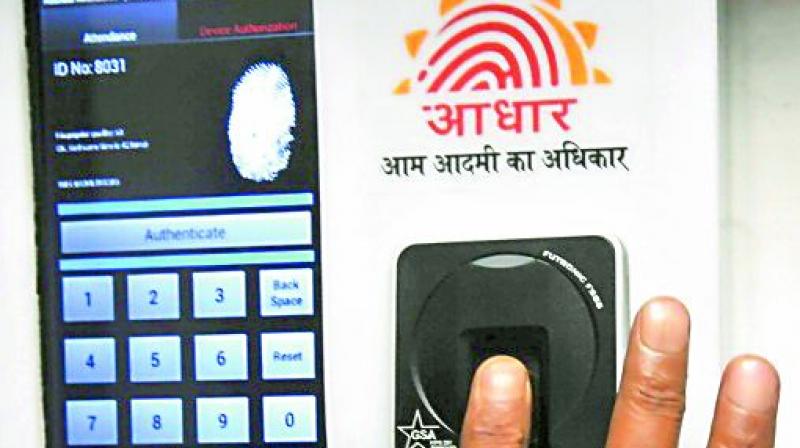Supreme Court: Privacy part of fundamental right
Centre welcomes ruling; SC bench to go into validity of Aadhaar Act.

New Delhi: In a historic ruling protecting the rights of all citizens, the Supreme Court on Thursday held that the “right to privacy” was protected as an intrinsic part of the right to life and personal liberty under Article 21 and part of the fundamental freedoms guaranteed by the Constitution. A nine-judge Constitution bench of Chief Justice J.S. Khehar and Justices J. Chelameswar, S.A. Bobde, R.K. Agrawal, Rohinton F. Nariman, A.M. Sapre, D.Y. Chandrachud, Sanjay Kishan Kaul and Abdul Nazeer thus unanimously overruled the decisions in the 1954 M.P. Sharma case and the 1963 Kharak Singh case by a bench of eight and six judges respectively.
The privacy issue arose in the light of the Centre pushing its agenda of making the Aadhaar card with its biometric, iris and other data, mandatory for availing several services, including banking transactions and for filing of I-T returns. A five-judge Constitution bench had referred the case to a larger nine-judge bench. In the light of Thursday’s order, the validity of the Aadhaar Act will be tested on the touchstone of the right to privacy by a three-judge bench in due course. In 1954, it was held that the right to privacy was not protected by the Constitution and in 1963 it was again held that it was not protected by the Constitution. The nine-judge bench has now overruled this.
Justice Chandrachud delivered the judgement on behalf of Chief Justice Khehar and Justices Agrawal, Abdul Nazeer and himself. Justices Chelameswar, Bobde, A.M. Sapre, Rohinton Nariman and Sanjay Kishan Kaul gave separate but concurring judgements with some additional reasons. Justice Chandrachud’s main order said: “The right to privacy has been held a fundamental right of the citizen, being an integral part of Article 21 of the Constitution. Life is precious in itself. But life is worth living because of the freedoms which enable each individual to live life as it should be lived. The best decisions on how life should be lived are entrusted to the individual. They are continuously shaped by the social milieu in which individuals exist.”
The court said the strength of Indian democracy lies in the foundation provided by the Constitution to liberty and freedom. Liberty and freedom are values which are intrinsic to our constitutional order, but they also have an instrumental value in creating conditions in which socio-economic rights can be achieved. The court said it was the State’s duty to safeguard the ability to take decisions — the autonomy of individuals — and not to dictate those decisions. To live was to live with dignity.
“Life”, within the meaning of Article 21, was not confined to the integrity of physical privacy. Privacy, with its attendant values, assures dignity to the individual and it is only when life can be enjoyed with dignity can liberty be of true substance. Privacy ensures the fulfillment of dignity and is a core value, which the protection of life and liberty is intended to achieve.
The bench said, “The attorney-general argued before us that the right to privacy must be forsaken in the interest of welfare entitlements provided by the State. In our view, the submission that the right to privacy is an elitist concept and aspirations of the large majority constituting the rest of society is unsustainable. Rejecting this argument, the court declared the A-G’s submission betrays a misunderstanding of the constitutional position. The refrain that the poor need no civil and political rights and are concerned only with economic well-being has been utilised though history to wreak the most egregious violations of human rights.”
